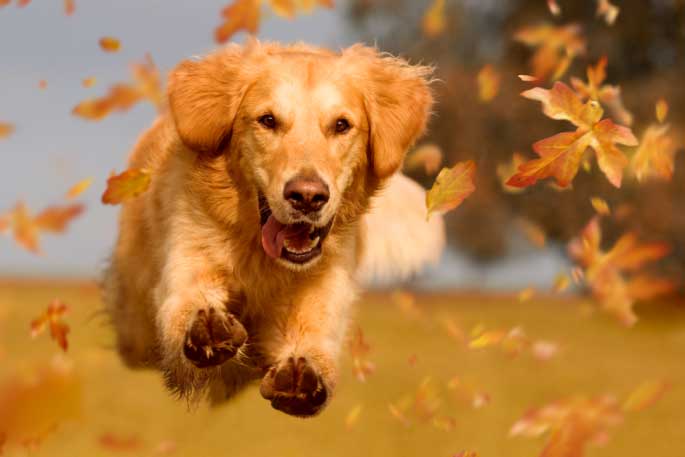
You’re probably fantasizing about cuddling up and running around with your new pup. It’s the thrilling dream of every prospective dog owner.
But with many great breeds available, narrowing down your search for a perfect furry companion is difficult.
Every dog is a good dog, but every breed has unique qualities suited for certain homes. By investing in the right dog, you’ll be investing in lifetime compatibility.
Read on to learn how to choose a dog best suited for you. After reading, you’ll be closer to one of the best friendships you’ll ever have.
Experience as an Owner
If you’re a novice dog-owner, then you’ll want to choose a lower-maintenance dog breed. Mischievous and stubborn dogs may not be well-suited for first-time dog owners. Many dog-lovers find them rewarding to raise, but newbies might be better-suited for canines that need less specialized support.
Bigger dogs are generally considered higher maintenance since their size makes them more difficult to contain. But dogs such as Golden Retrievers and Greyhounds are considered lower-maintenance because of their easygoing temperament.
Read More: Beagle Pitbull Mix
Siberian Huskies are widely loved, but they’re mischievous, loud, and need constant and consistent exercise. Their large size can tire out their owners even quicker. Beagles, which come from a smaller breed, are also considered more difficult to train because of their wildly independent nature.
Again, higher-maintenance breeds aren’t inferior. In fact, plenty of experienced dog owners prefer certain high-maintenance breeds because of their unique temperament, exercise requirement, and aesthetics.
Understand your limits as an individual and as a first-time dog owner. Doing so will result in a breeding decision that benefits both you and your dog.
Exercise Requirement
Higher exercise requirements can be higher-maintenance. But some dog owners seek breeds that can handle a lot of exercise. Know your ability to meet your new dog’s fitness needs, whether it involves more or less exercise.
Dogs typically need about an hour of exercise a day, but some need two hours or more. Know that some breeds actually need less exercise than others and that you don’t want to overexercise your new puppy.
So if you work a 9-5 job, then you should get a puppy like the Shih Tzu, the Boston Terrier, or the Chow Chow. If you frequently exercise and can fit in two or more hours of exercise per day, then you might want an Afghan Hound, German Shepherd, or Australian Shepherd by your side.
Tailoring your dog’s exercise routine to its breed will prolong its life and help it maintain a healthy weight. To ensure this, get a dog whose exercise needs you can handle.
Temperament
Determine what temperament you seek in your new dog. Are you outgoing and friendly, and want a puppy that feeds off your energy? Or are you more reserved, and want a dog that won’t need constant attention?
Of course, dog’s personalities vary beyond introversion/extroversion. There are many intelligent dog breeds, but some of them are aloof while others are friendlier. Many dog breeds are friendly, but some are warier of strangers while others welcome newcomers with open paws.
There’s even variance in personalities within dog breeds, but researching a breed’s general temperament will give you a glimpse of what you should expect. For example, Golden Retrievers are almost always bright and bubbly, and Dobermans tend to be energetic and bold.
Many breeders will even take videos of different puppies for sale from the same litter. You can observe each puppy’s individual personality through these videos.
You can also see how different puppies interact with each other to determine how they socialize. Taking care in each step in your selection process will perfect your search for a new puppy.
Lifestyle Compatibility
Dogs prefer certain lifestyles just as humans do, so you’ll want to choose a breed whose preferences best align with yours.
Exercise isn’t the only component of your lifestyle. Are you looking for a family-friendly dog? Do you live in cold weather?
Know the answers to these questions for the sake of your dog and for yourself. Alaskan Malamutes thrive in cold weather while Whippets hate chilly conditions. Some households buy guard dog breeds to function as both loyal family pets and reliable guard dogs, like Rottweilers and Thai Ridgebacks.
Hunters might buy a puppy that is specifically bred to hunt, like Korean Jindos or Japanese Akitas. Fitness nuts will create long-lasting memories with a canine that loves the outdoors as much as they do, like Bernese Mountain dogs and Rhodesian Ridgebacks.
The size of your home should also factor into your decision. If you live in an apartment, then you should stray away from Saint Bernard dogs and Jack Russell Terriers. But countryside homes with ample roaming space might be the best place for Pointers and Pit Bulls.
Are you living with other working adults, each paying their own rent? Then you might want a lower-maintenance dog that doesn’t act out too often. Even if you’re an experienced dog owner, you could benefit from owning dogs such as Poodles and Border Collies.
Understand what parts of your lifestyle you cannot compromise on. Keep searching for your new dog until you find one that can comfortably be in your life for 10+ years.
A New Pup for a New Friendship
You’re bound to love any dog that makes its way into your home. But if you have the freedom to carefully select your dog, then use it. This decision will impact your puppy’s happiness and comfort as well as yours.
We hope this guide to choosing a new pup has helped you. If you want more information like this, then check out the rest of our site! Our website contains many posts like this, meant to help readers improve their lifestyle through better choices.



